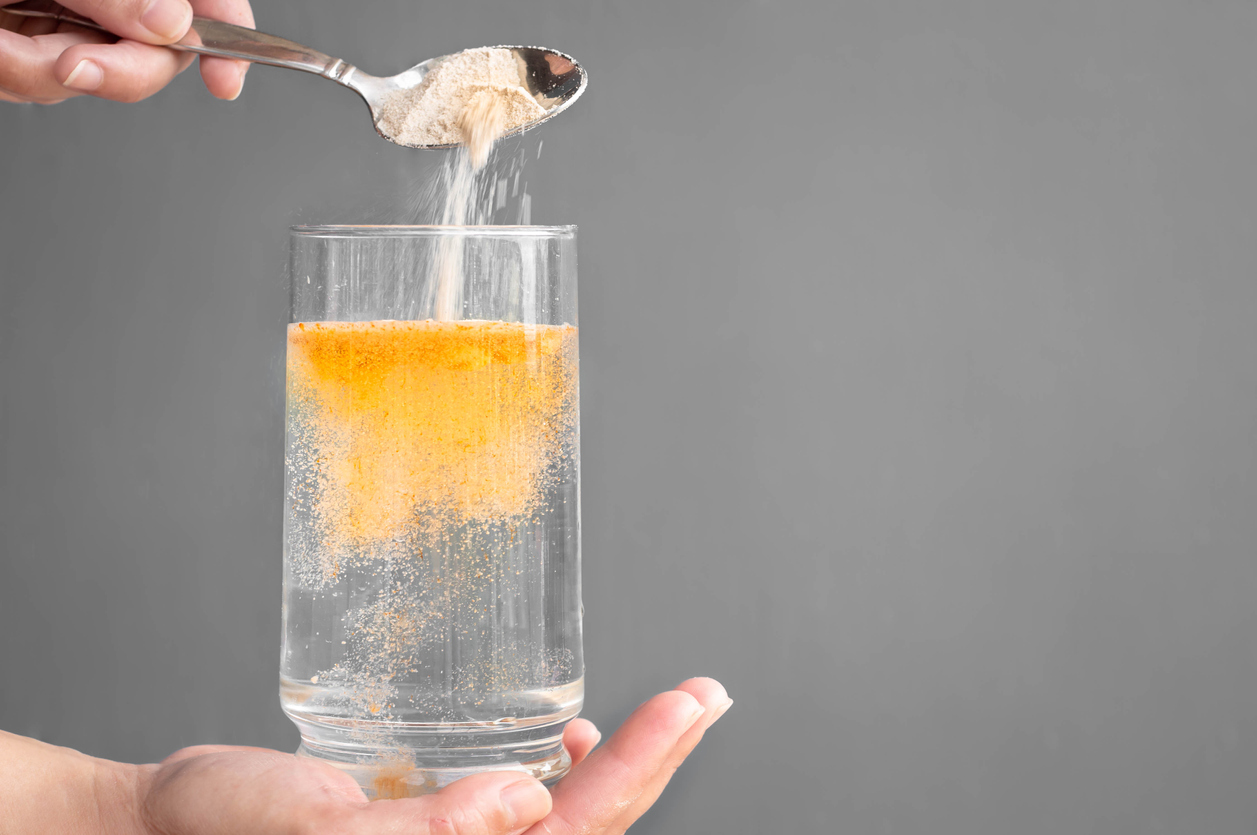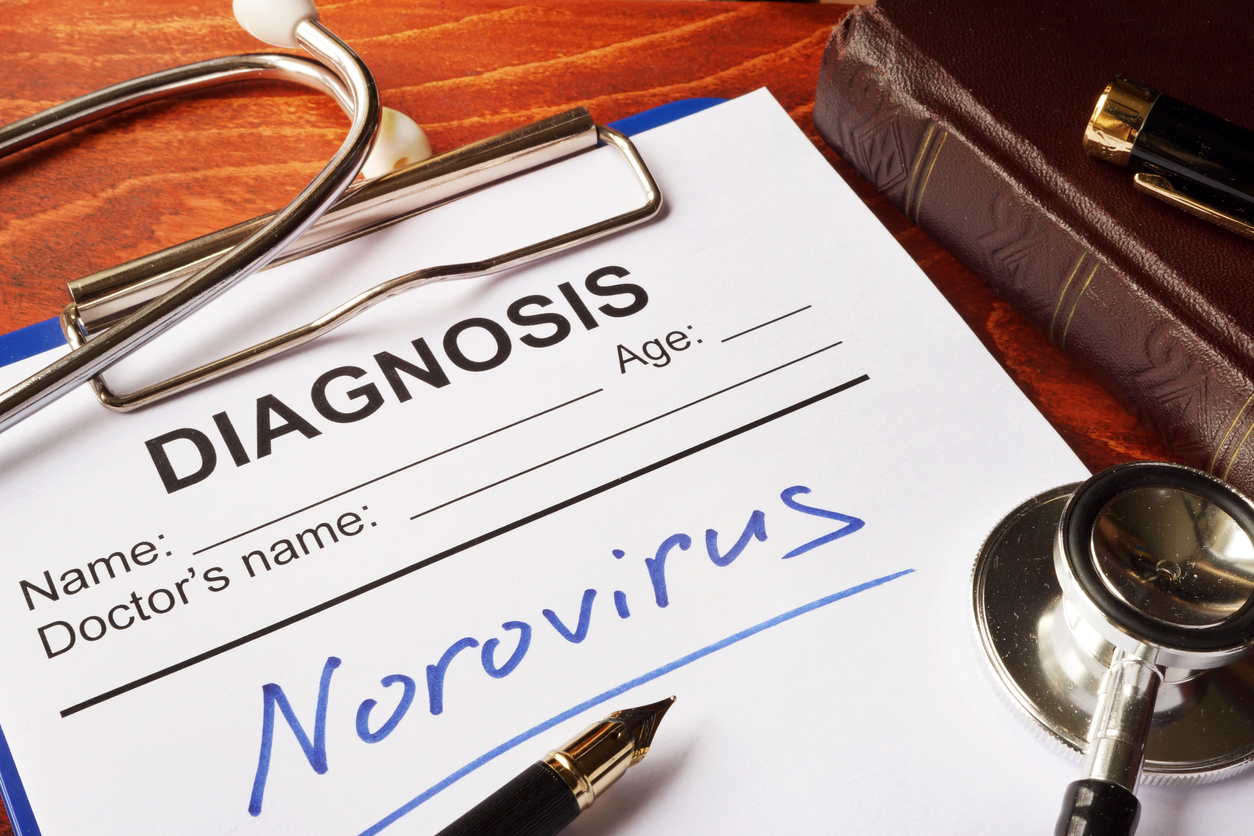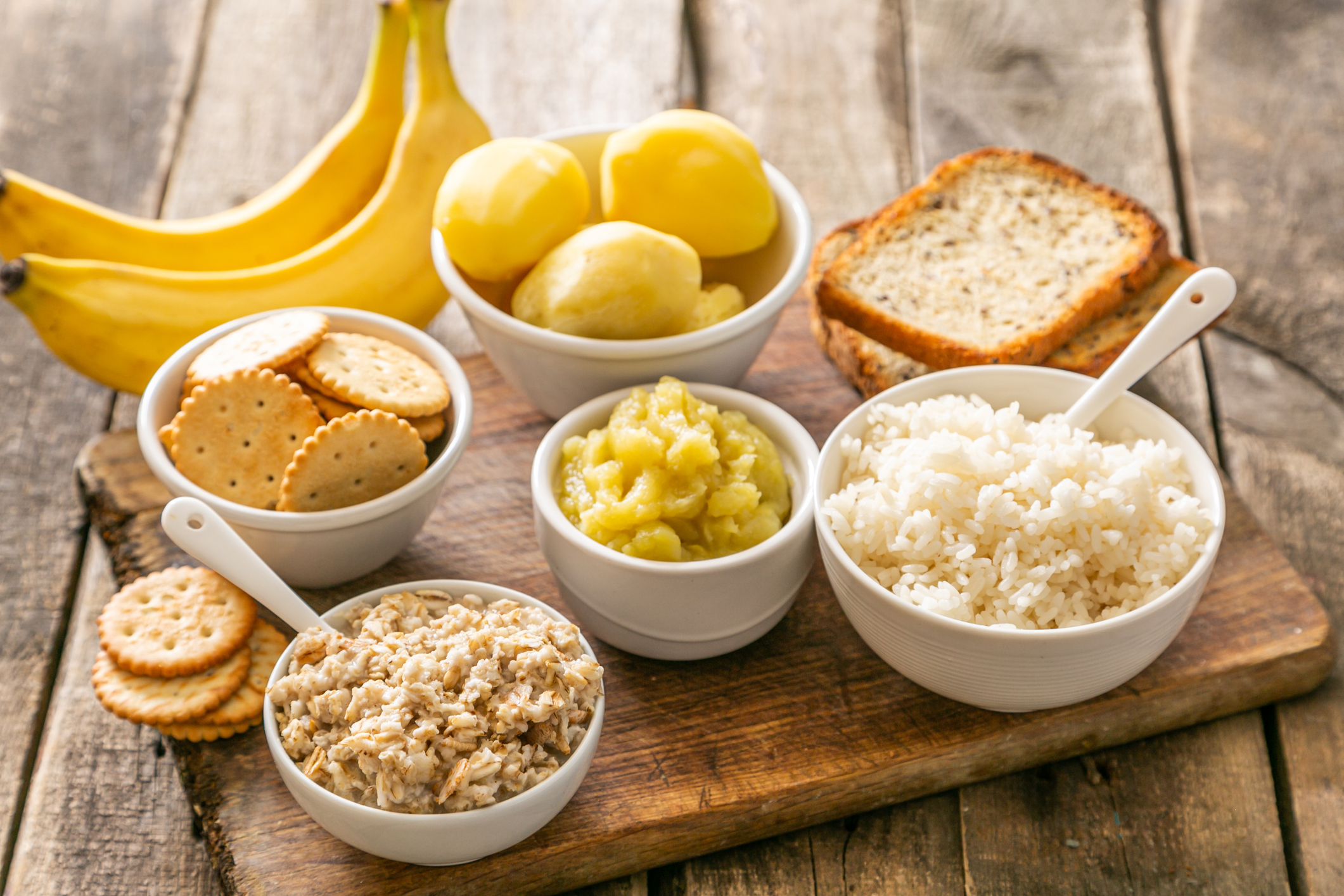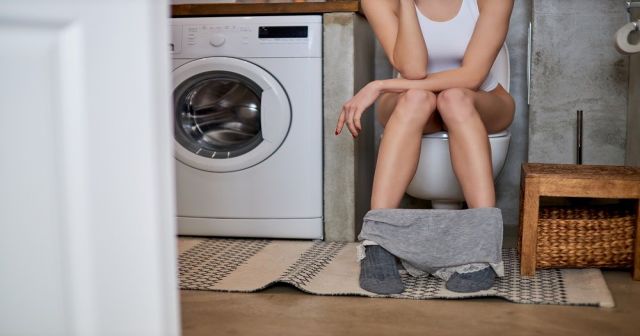What is diarrhoea?
Diarrhoea is when your poo is very loose and watery, and you’re pooing more often than usual. Lots of things can cause it and you may also have other symptoms, including feeling sick (nausea), being sick (vomiting), tummy pain or weight loss.
It could be your body’s response to inflammation, stress or pain. Or you might not be absorbing your food properly. It can be caused by many things, from a viral or bacterial infection to a food intolerance or allergy.
Diarrhoea can be very uncomfortable and unpleasant, but it’s a problem that most people will get at some point in their lives, and it usually passes within a few days. There are things you can do to manage it at home, and there are also treatments a pharmacist or doctor can recommend – there’s no need to feel embarrassed about asking for help if you need it.
So keep reading to find out what can cause short-term or long-term diarrhoea, how to treat and prevent it, and when you should see a doctor.
What causes diarrhoea?
Diarrhoea can either be mild or severe, and can last no more than a few days (acute) or last for weeks or months (chronic). It’s a very common problem because so many things can cause it.
Common things that can cause short-term (acute) diarrhoea
- gastroenteritis – this is an infection that’s caused by food poisoning from bacteria (such as E. coli), a virus (such as norovirus or rotavirus) or parasites from contaminated water
- some medicines – including antibiotics and laxatives; check the information leaflet that comes with your medicine
- certain foods and drinks – including alcohol, caffeine, spicy or fatty foods, and high FODMAP foods such as artichokes, beans, garlic and onions
- anxiety or stress
Unusual things that can cause short-term diarrhoea
- surgery on your tummy (stomach), bowel or gallbladder
- appendicitis
- damage to your bowel caused by radiotherapy treatment
Health conditions that can cause long-term (chronic) diarrhoea
- a food allergy or intolerance – causes can include lactose (found in milk and other dairy products), fructose (the natural sugar found in fruit and honey) and artificial sweeteners (found in chewing gum and other sugar-free products)
- coeliac disease – caused by a reaction to gluten in food
- some medicines
- chronic constipation
- bowel conditions – including irritable bowel syndrome (IBS), inflammatory bowel disease (IBD), Crohn's disease, ulcerative colitis and diverticular disease
- hormone disorders – including diabetes and overactive thyroid (hyperthyroidism)
- bile acid malabsorption – when bile builds up in your digestive system
- chronic pancreatitis
- some cancers, including bowel cancer

The best self-care tips
If you have short-term diarrhoea, there are plenty of things you can try at home to help you feel better and treat the problem, including:
- staying hydrated to avoid dehydration – make sure you drink plenty of fluids throughout the day, and avoid caffeine and alcohol. You may find soup and fruit juice helpful for keeping up your energy levels. You can also use oral rehydration solutions, available from pharmacies and supermarkets (see below)
- eating soft and low-fibre foods – as your poo returns to normal, or as soon as you feel able to, slowly introduce foods such as crackers, bananas, rice and chicken
- avoiding certain foods – steer clear of dairy, fatty and spicy foods for a few days while you recover, and go back to your usual diet gradually
- reducing stress – if you think stress or anxiety are triggering diarrhoea, it may help to try relaxing activities such as deep breathing or mindfulness, and get plenty of exercise
Soothing a sore bottom
If you’re going to the toilet a lot, you might find that your bottom becomes quite sore. Things you can do to help soothe the area include:
- using soft toilet paper or damp cotton wool to wipe
- taking a warm bath to soothe pain and help with healing
- gently patting skin dry with a soft towel after washing (and avoiding rubbing)
- applying soothing creams, such as as rich skin cream, petroleum jelly or zinc cream
- wearing loose, cotton clothes and underwear to limit sweating and more soreness
How can a pharmacist help?
Your pharmacist may recommend:
- oral rehydration and electrolyte powders – these help prevent or treat dehydration, and also replace vital salts and sugars that you lose when you’re dehydrated. They’re particularly recommended if you’re elderly or have an underlying medical condition
- medications – medication such as loperamide can help if you need quick relief from diarrhoea (if you’re travelling, for example), as it can reduce the number of bowel movements you have and make your poo less watery. But it isn’t routinely recommended for short-term diarrhoea, and isn’t suitable for everyone – you shouldn’t use it if you have blood or mucus in your poo, or a high temperature (fever). Always check with your pharmacist before taking medications, as how suitable or effective they are will depend on what’s causing your diarrhoea. You shouldn’t take loperamide for more than 2 days without speaking to a doctor

When to see a doctor
Most of the time, diarrhoea can be easily and effectively treated at home, and will pass within a few days. But if self-care and pharmacy treatments don’t help and your diarrhoea lasts more than 7 days, it’s a good idea to see a doctor.
You may find it difficult to talk about or feel embarrassed, but there’s no need to be – your doctor has seen and heard everything before, and they’ll want to help find the best treatment for you.
If diarrhoea isn’t treated, or if it’s particularly bad, it can cause dehydration, which can be life-threatening if it isn’t treated. Symptoms of dehydration include feeling tired and very thirsty, and having a dry mouth and skin.
You should get emergency medical help if you have diarrhoea and:
- you feel weak, lightheaded or dizzy
- you haven’t had a pee in 8 hours
- there’s a lot of blood in your poo or it’s very dark or black
- you have very bad tummy pain, or tummy pain that doesn’t go away
- you’re pregnant and have had diarrhoea for more than 48 hours, can’t keep fluids down, have a fever, stomach pain, very dark pee, or bloody diarrhoea or bleeding from your bottom
You should also see a doctor as soon as possible if you have diarrhoea and:
- you’ve had it for more than 7 days
- it’s happening very often (more than 6 times in 24 hours)
- you’re unusually tired or drowsy
- you’re vomiting a lot
- you’re losing a lot of weight
- there’s blood in your poo
- you have a fever
- it’s severe and happening while you’re taking medication such as antibiotics, or continuing afterwards
- you have a medical condition or a weakened immune system
- you’re worried about your health, or you think your diarrhoea might be caused by an underlying condition
You can also use our Smart Symptom Checker if you’re worried about your symptoms.
How can a doctor help?
Your doctor may be able to help by:
- giving advice – they can recommend things to try, and what to watch out for if your symptoms get worse
- prescribing antibiotics – they may prescribe antibiotics if you have severe diarrhoea, but usually only if it’s caused by certain types of bacteria. They will decide based on your symptoms, health history (for example, if you’ve recently travelled abroad or you have a weakened immune system) and usually a poo (stool) sample
- changing your medications – if your diarrhoea is a side effect of a medication you’re taking, your doctor may be able to change it
- treating health conditions – your doctor will treat any diagnosed health conditions that can cause diarrhoea to help reduce your symptoms
- recommending hospital treatment – in rare cases, if you’re losing too much water or you’re unable to drink (if you’re also being sick, for example), your doctor may recommend you go to hospital to be given fluids directly into a vein (intravenously)
How is long-term diarrhoea diagnosed?
As well as asking about your symptoms and how long you’ve had diarrhoea for, your doctor may need to do some tests to see if there’s an underlying problem that needs dealing with.
These tests may include:
- a physical examination of your tummy, and sometimes your bottom (rectum)
- blood tests
- poo (stool) analysis
- sigmoidoscopy – a short, flexible tube with a camera is put into your bottom to look inside the lower part of your large bowel (colon) and take a sample of tissue (biopsy)
- colonoscopy – similar to a sigmoidoscopy, but a larger, longer tube is used to look at all of your colon
How to avoid diarrhoea
Because so many different things can cause it, diarrhoea isn’t always preventable. But there are things you can do to help you avoid it, including:
- maintaining good hygiene – always wash your hands after using the toilet and before preparing or eating food
- storing and cooking food safely – keep raw and cooked foods separate, and store food properly in a fridge or freezer. Make sure hot food is thoroughly cooked, especially meat and fish, and don’t eat food that’s past its use-by date. Wash fruit and vegetables before cooking or eating them
- taking extra care when you’re travelling – it’s common to get ‘travellers’ diarrhoea’ if you travel abroad, especially in countries where public hygiene and sanitation may be different from where you live. To help prevent this, you should only drink bottled water (or boil tap water for at least 1 minute), and not have ice in your drinks. Also avoid eating ice cream; raw or undercooked seafood, meat and chicken; foods that might contain uncooked eggs; unpasteurised milk and dairy products; fruit and vegetables with damaged skins; and salads
- addressing your triggers – if your diarrhoea is caused by food allergy or intolerance, you can prevent it by avoiding the foods that affect you. Or if stress is causing diarrhoea, relaxation techniques can help prevent it
Stopping the spread of infection
If you have diarrhoea and you live with other people, it’s important to take steps to avoid spreading the infection, including:
- washing your hands – use soap and warm water to wash your hands after every visit to the toilet
- cleaning the toilet – use disinfectant to clean the toilet bowl, flush handle and seat after every use
- avoiding sharing – don’t use the same towels, wash cloths, cutlery or utensils as other people
- keeping washing separate – wash any soiled clothes and bedding separately from other clothes, at a high temperature (60C)
- staying at home – don’t mix with other people outside of your home until it’s been at least 48 hours since you had diarrhoea
Your health questions answered
What does the colour of my diarrhoea mean?
Answered by: Healthily’s medical team
“Diarrhoea can be all sorts of colours – brown, yellow, green, red, black – but shades of brown and even green are thought of as normal for this condition. Other colours can be caused by the amount of bile in your poo, or by certain foods, but sometimes different colours can mean there’s a problem in your digestive system. You should speak to your doctor if you’re concerned, or if you notice very pale poo, very dark, tar-like poo, or any red colour that could suggest blood. Read more about different colours of poo.”







